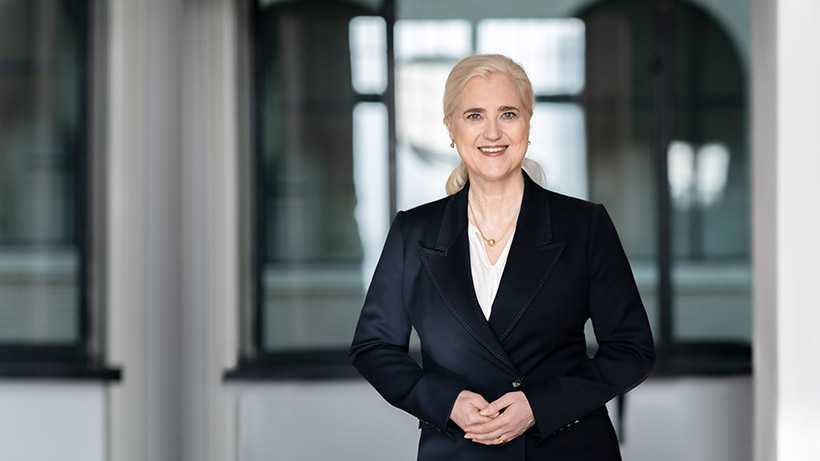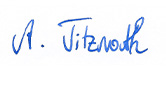Letter to the shareholders

Angela TitzrathChairwoman
of the Executive Board
Ladies and gentlemen,
The smallest disturbances can lead to drastic, unforeseeable changes. A butterfly flapping its wings in Brazil can cause a hurricane in Texas, as the meteorologist Edward Lorenz once said in the 1970s. And when several localised disturbances such as this occur simultaneously, the consequences are even more severe. When that happens, as can be seen at present, then delivery times for high-demand products can suddenly rise from within a day to several months. It is not just the effects of the coronavirus pandemic that have led to the current imbalance in the global supply of goods. A grounded container freighter in the Suez Canal, an Arctic cold front restricting oil production in the US state of Texas, the massive spread of the mountain pine beetle in the forests of Canada and its resulting impact on logging, a fire at a Japanese computer chip factory, and power supply problems in China – there have been a lot of butterflies flapping their wings this year. And these events not only affect production, but also logistics. When key export ports in China are closed for weeks due to the pandemic, this very quickly leads to hundreds of ships being backed up and millions of containers not being handled.
All over the world, ports are having to deal with ever larger ships, pressure on prices, the need for greater efficiency and fierce competition. This is why stable customer relationships are more important than ever.
The consequences of disrupted supply chains are also affecting operations at the Port of Hamburg. Almost all incoming ships are delayed – and not just by a couple of days, but sometimes by several weeks. We are working 24/7 at our facilities with both equipment and personnel operating at high capacity. Despite all the difficulties, our employees are doing their utmost to ensure that companies and consumers receive their goods as quickly as possible. The Port of Hamburg is an important logistical hub, especially on the route between Europe and Asia. Above all, the percentage of goods from China handled at the port continues to grow and now stands at approximately 37 percent of total volume. In view of this trend, it therefore makes sense to take our strategic partnership with one of the world’s largest operators in the logistics sector, the Chinese company Cosco, to a new level. Provided that the relevant federal authorities grant their approval, Cosco Shipping Port Limited (CSPL) will acquire a minority stake of 35 percent in HHLA Container Terminal Tollerort (CTT). The corresponding agreement was signed by both parties in September.
After almost 40 years of doing business together, we are delighted to be strengthening the relationship with one of our most important customers in this way. This step is necessary in view of the massive changes that logistical value chains currently face. All over the world, ports are having to deal with ever larger ships, pressure on prices, the need for greater efficiency and increasingly fierce regional and international competition. This is why stable customer relationships are more important than ever. As a result of the agreement with CSPL, CTT will become a “preferred hub” in Europe, meaning it will be the preferred transshipment point for Cosco where cargo flows will be concentrated. This will secure capacity utilisation and employment at CTT.
The growing number of ships from China is not the only reason for HHLA’s success in the current financial year. Contrary to our original assumptions, the ongoing disruptions to global supply chains and major ship delays are also leading to a temporary spike in storage fees in the second half of 2021 as a result of longer container dwell times at HHLA’s terminals in Hamburg. Against this background, we have raised our revenue and earnings forecast for the current year. However, the lengths we are going to and the efforts we are making to overcome the current challenging circumstances should not be overlooked. We are constantly aware of our responsibility as a service provider for Germany as an industrialised nation.
Yours,

Angela Titzrath
Chairwoman of the Executive Board